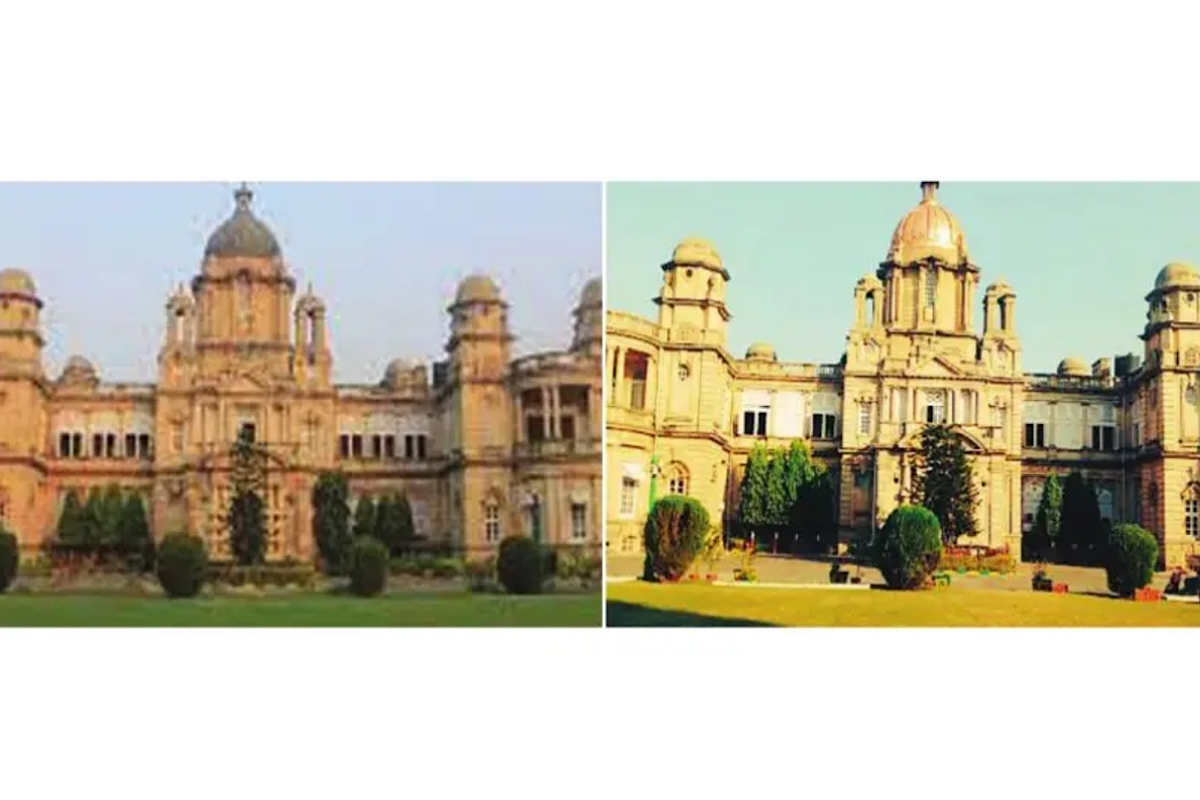It’s difficult not to admit I’m pretty confused, if not distraught. Call it nostalgia or fear of the unknown at the requiem scripted by Ministry of Railways for what many railway officers, serving and retired, lament is curtains on the IR’s decades-old apex training centre in Vadodara, the RSC (Railway Staff College), rechristened (in 2012), rather prosaically, as NAIR (National Academy of Indian Railways).
For it’s not the place; it’s the memories that live there. Recalling Tennyson’s celebrated aphorism that the old order changeth yielding place to new, my mind is spontaneously attuned to Raheel Farooq’s insight, “The greatest fear in life is not of death, but unsolicited change”. Didn’t we feel jolted by the sudden sledge hammer that came stealthily swooping on the institution, depriving it of its specialised infrastructure built over the years? We are at a loss to fathom the rationale why the Railway Board allowed the newly born babe, GSV (Gati Shakti Vishwavidyalaya) to “take over” its assets, and have its top functionary ensconced, nudging out the old, legitimate chief as in a coup. How will the GSV, a Central university established to create a resource pool of best-in-class professionals for the transport/ logistics sector, also assume the mantle of a specialised training facility for IR’s 12,000 officers? It is learnt that the university will deploy faculty from IR’s CTIs (centralised training institutes) for pedagogic purposes.
Advertisement
Will the senior railway officers, currently constituting the faculty at CTIs, be equipped to teach modern day specialised subjects of logistics and transport economics? In the meanwhile, amidst a flurry of fuzzy events, a batch of 95 freshly recruited probationary Group-A officers of IRMS (Indian Railways Management Service) have been diverted to the Indian Railways Institute of Transport Management (IRITM), Lucknow, which is now proposed to gear up for their Foundation Course training programme. Shouldn’t a state-of-the-art campus be built anew for the GSV with requisite infrastructure? It seems axiomatic that IRITM will need to enhance its infrastructure and resources for the newly assigned task. As it is, little seems to have been done to allay fears from uncertainties arising from what was ferreted as a panacea to curb deleterious virus of departmental silos in IR management. Much sulk and chest-thumping remain unabated among IR officers owing to little clarity about the ambit and impact of IRMS. Recommended by the Ackworth Committee in 1924, IR had thoughtfully set up in January 1930 a centralised training facility for railway officers with a 60 acre campus in salubrious Dehradun, at a cost of Rs 25 lakh.
Formally opened in April 1930 by the Governor of Uttar Pradesh, Sir Malcolm Hailey, the Railways’ apex training centre had its life cut short. The IR Board viewed it as an “expensive luxury” amidst the Rs 10 crore-loss Railways suffered in the year then. Its entire infrastructure was sold in 1932. That became the habitat of the renowned Indian Military Academy. Thanks to the vision of a great Gaekwad, Baroda became a renowned centre of learning during the days of the Raj. The city received a boost to its stature in academia, when the Railways’ premier institution for training its senior managers, 22 years after the closure of the Dehradun facility, in the shape of the Railway Staff College found a new regal abode. It was in the sprawling royal estate, the Pratap Vilas Palace at Lalbaug, designed by C.F. Stevens in the renaissance genre and built in 1914, which IR purchased from the Maharaja. The Baroda Staff College was inaugurated on 31 January 1952 by Union Transport and Railways Minister, N. Gopalaswami Ayyangar in the presence of Minister of State K. Santhanam and Railway Board Chairman, F. C. Badhwar, among others. Memories of my initiation in rail life sixty-six winters ago still haunt me. The very name of Baroda of old, or Vadodara of today, conjures up images of the majestic barh tree, with its quaint aerial roots that seemed to grow upside down. When Prime Minister, Jawaharlal Nehru was asked why he did shirshasan every morning, he said, it gave him a unique perspective of the world, seeing it upside down. Our group was the second biggest those days, by and large heterogeneous ~ most of them fresh out of university.
There were some brilliant ones who went through a whole library of novels while attending lectures but topped every Staff College exam. Another took bridge lessons from his friend while sitting on the back benches, particularly during lectures on finance and accounts. By and large, we were a bunch of naïve simpletons; we stood in not a little awe of our senior batch who conducted themselves as seasoned men of the world. What particularly had us all goggle-eyed was the near-professional and nonchalant way they played flush even when they were on their way to the examination hall for the end-of-the-term test. It’s a different matter that twenty of them were so taken to the College that they were called to undertake their test once more.
However, in a more serious vein, along with the rudiments of interlocking, we also picked up some fundamentals of management and team-work, expanded our horizons, learnt to laugh at ourselves, and cemented life-long friendships ~ all of which stood us in good stead in service and beyond. Every routine at the College, no matter how small or insignificant it looked, had a great impact: the style of dining and quality of food, unsaid manners and civility at the table held their own lessons. As the majesty of the old Gaekwad palace with its splendour in stone and sprawling green cover whispered in our ears an element of awe, our attitudes and attributes would be chiselled and moulded by a kaleidoscopic range of faculty members ~ from the sheer brilliant to the mere pedestrian. Some were erudite and witty; some had a presence and commanded pindrop silence; some induced a sense of ennui.
This was the time one learnt, if one learnt at all, that management, as it has evolved, and is evolving, is a battle of ideas and ideals. The Egyptian pyramids were made of stone; the new pyramids of wealth today are built on knowledge. The Information Revolution is now at the point at which the Industrial Revolution was in the early 1820s. In 1829 came the railroad ~ a product truly without precedent. Not only did it create a new economic dimension but it also rapidly changed the mental geography.
We realised that good, effective management doesn’t imply a jigsaw puzzle to be solved: lessons outside the classroom were sometimes more important than inside: no lectures on punctuality could be half as effective as Principal Mukherjee standing outside the classroom, sharp at 0801, looking at the watch, without uttering a word, watching some of the young probationers trundling along to class. His very look could kill! No young man was seen to be late ever again It’s difficult on my part to eschew the last infirmity of old minds to hark back to the past with rose-tinted glasses, to suggest some emphasis on a few aspects of curricula at the College.
The blizzard of change around us, all over the globe, demands we lead the change. At the College, as at other similar institutions, the goal is not merely to teach tools and techniques, general and subsidiary rules. Essential it is to impart to trainees a perspective on their role as managers and leaders. Leaders listen to people with different ideas and choose their own direction. A leader used to need great answers; today, the led now expect to be consulted, not instructed.
An institution of higher professional learning must perforce inculcate the basic ingredients of character and courage, diligence and devotion in young minds to emerge as leaders: vitality that promotes interest in the world outside; courage or absence of fear ~ behold the turtle, it only makes progress when it sticks its neck out; sensitivity ~ man is a social being, no doubt, but equally he is a solitary pilgrim of eternity, individuals have their best ideas when allowing their minds to wander, reflect and play; and humility that enables the mind to remain ever open and inquisitive, with an intensity to learn and perform.
Again, fun and work are not incompatible; they can co-exist. Work is more productive when it’s fused with fun. Relevant will it be to allude here to the Indian army that shares similar diversity and complexity in its departments and services. An important area for railways to emulate is the army’s selection process for command posts, its insistence on the right combination of training, exposure, and expertise. Avoiding instances of senior commanders ‘learning on the job’ should interest the IR Board. Railways has been trudging along a purely bureaucratic path.
Although IR has developed extensive training facilities for its managers and other ranks, these are almost entirely department-oriented at all levels; with little evidence of job-oriented exposure, evolving integrated logistics services, along with the leadership role required at crucial Divisional and Zonal levels. Gone are the days of each mode of transport going its own way; the need today is of integrated intermodal logistics – roads, railways, waterways, airways – all optimally enmeshed. Aristotle’s profound words, “For the things we have to learn before we can do them, we learn by doing them” serve as a cornerstone of the institutional approach to future-ready education.
In his Seven Pillars of Wisdom, Colonel T.E. Lawrence recounts his experiences in the Arab revolt against Ottoman, featuring a poignant metaphor – “War upon rebellion is messy and slow, like eating soup with a knife” – for the organisational struggle to transform workplace processes, encompassing analytical thinking and communication abilities, in order to effectively navigate cognitive complexities.
The 21st century workplace values efficiency, agility and resilience. The faculty are expected to embrace innovative pedagogies for trainees to necessarily possess a blend of industry knowledge, technical proficiency in a core domain, coupled with a working understanding of another business vertical. It would perforce entail a strong, active, and growing interface with business and industry.
(The writer is former CMD of CONCOR, and now Distinguished Fellow at Asian Institute of Transport Development)
















